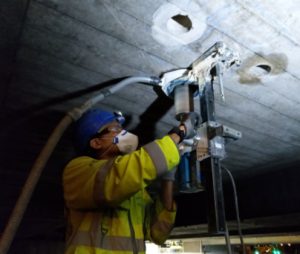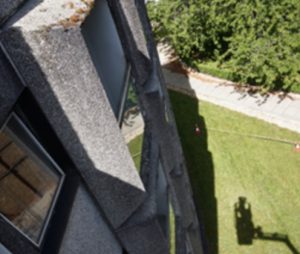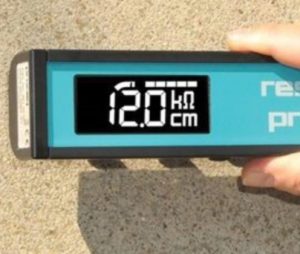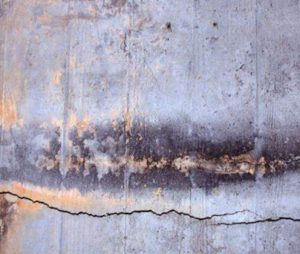What is Concrete Investigation?
Concrete Investigation is the general term applied to the numerous assessments of new and pre-existing concrete. These ensure that your concrete meets industry requirements and specifications for use. But how is concrete investigated? And how does each test contribute to a safer product?
What is Concrete Investigation?
Concrete Investigation refers to a range of services that determines the strength and condition of a concrete batch or component. Clients often contact us to investigate failed structural elements. However, we recommend Concrete Investigation at any stage and regular intervals throughout its duration of use.
Streval does Concrete Investigations on a small or large scale, depending on your requirements. So whether you have a faulty wall or a car park floor that needs looking at, we can help.
Why are Concrete Investigations Essential?
Concrete Investigations ensure safety compliance and prevent potentially dangerous situations. Preliminary investigations can stop faulty batches from being used, and post-installation assessments can identify brewing problems.
Pre-installation composition assessments can highlight fluctuations in the concrete material content that could contribute to a potentially dangerous product. They help to create consistency and ensure that each batch performs as well as another.
There is never a wrong time to have a Concrete Investigation.
What Kinds of Concrete Investigations are There?
At Streval we offer a range of Concrete Investigations that assess different aspects of the concrete to provide a detailed overview of its condition.
You can combine the following services to formulate a more accurate report and steer you in the right direction.

- Diamond Coring
Diamond coring establishes the thickness of your concrete slabs and removes cores for compressive strength tests. It determines compliance with BS EN 12504-4 and BS EN 13791 regulations.
At Streval, we core through any depth up to 450mm in diameter.
- Carbonation Depth Testing
Carbonation Depth Testing indicates the extent of carbon dioxide infiltration. Excess carbon dioxide reduces the pore solution of your concrete and encourages corrosion. Understanding the level of damage will help you decide on corrective action.
We use phenolphthalein indicator fluid, which turns pink when in contact with alkalines, to determine the pH value of your concrete.
- Chloride Ion Content Test
The Chloride Ion Content Test proves the likelihood of corrosion in the reinforcing steel to indicate the structural integrity of your concrete. The test involves taking dust samples at depths of every 25mm and testing them for chloride ions.

- Cement Content Testing
Cement Content Testing helps to properly calibrate the chloride ion percentage readings of the dust samples taken in the chloride ion content test.
This test is done when cement hydration or hardening has occurred. These symptoms can result in lower tensile strength, shrinkage and cracking, which makes the cement unsafe for use.
Cement Content Testing indicates the best course of corrective action.
- Material Sampling
Material sampling tests compressive and tensile strength and the material content of concrete. These materials include asbestos, mortar and floor screed, grout, sulphate, and High-Alumina Cement (HAC).
The tests include coring, brick and steel sampling and dusting. Combined, they provide a comprehensive overview of the makeup of your concrete.
- HAC Testing
High-Alumina Cement (HAC) was a popular rapid-strength precast cement in the 1960s. But its predisposition to crystalline re-arrangement caused its banning in 1976. Crystalline re-arrangement makes cement susceptible to deterioration when exposed to water.
At Streval, we follow BRE (Building Research Establishment) guidelines to determine the presence of HAC in buildings.
Using visual inspection and laboratory sample testing, we can identify HAC in your cement and prevent further water damage.

- Resistivity & Permeability Testing
Resistivity and Permeability Testing pairs Half-Cell Corrosion Mapping and Electrical Resistivity measurements to determine the possible steel reinforcement corrosion and the porosity of the concrete.
It indicates whether free chloride ions can pass through the concrete matrix and encourage steel corrosion. Doing this test can help you to decide what corrective action to take.
- Concrete Cover & Reinforcement Mapping
Concrete Cover & Reinforcement Mapping test the cover which protects your reinforcement bars. Alongside Carbonation and Chloride Ion Penetration depth measurements, this test detects the cover depth using a pulse induction.
It will indicate whether your concrete cover needs relaying to continue protecting your steel reinforcement optimally.
- Corrosion Assessment of Embedded Reinforcement
This test uses Half-Cell Corrosion Mapping to assess the structural integrity of concrete. It focuses on the steel reinforcements and identifies the volume of rust surrounding it.
The expansion of rusty steel can create tensile stresses in the concrete, leading to cracking, delamination and spalling. This test will indicate whether your steel is rusting.

- Sulphate Content Tests
The Sulphate Content Test uses dust samples to test the sulphate content of concrete. Sulphates attack concrete and encourage deterioration, especially in frequent contact with water.
When exposed to water, the concrete matrix will turn to a soft paste and fall away from the surface of the concrete, as well as cause cracking.
This test will determine the sulphate content and point you towards corrective action.
- Cube Crushing
Cube crushing tests the tensile strength of the concrete by doing what it says on the tin. A machine exerts great force onto a cube of dry concrete until it breaks, providing a reading of the energy it takes and determining its compressive strength.
The reading will show the maximum stress your concrete can endure before it crumbles, which helps you to understand its suitability for your project.
How Can Streval Help with Concrete Investigation?
Here at Streval, we conduct these tests in exact compliance with industry standards. We value accurate results and provide detailed and concise reports to relay to your team.
Contact us now if you’d like to enquire about any of our services. We offer our services to Luton and the surrounding area, but we’re happy to travel further afield.
